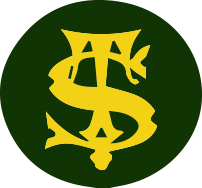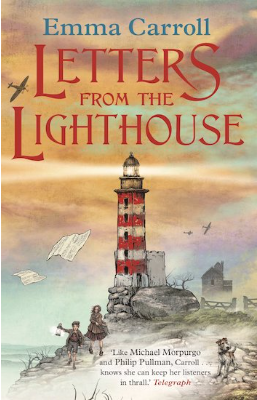Year 6
Welcome to Year 6!
Our Year 6 students have made an excellent start to the year, with many already demonstrating the qualities of true school leaders. We have a year full of exciting learning opportunities ahead, and we’re eager to see the incredible progress the children will make.
Year 6 is an important year in our pupil's journey, as we support them in becoming more independent, reflective learners. Alongside a broad and balanced curriculum, they embrace a range of responsibilities and rise to the challenges with maturity and enthusiasm. As role models for the rest of the school, every Year 6 student plays a vital role in shaping our school community.
High School Applications
As we are sure you are aware, you will need to fill in the high school application form for your child’s high school by October 31st (Salford & Manchester), which should be completed online. The councils usually send out guidance to you on how to apply.
Please don’t put only one high school on the application form. This will mean that if you don’t get your one choice, you will be given a place at the least-subscribed school.
If you do not have a baptism certificate for your child, please do not only apply for catholic schools.
Mathematics
Our first Maths topic in the Autumn Term is 'Number and Place Value' followed by Addition and Subtraction and then Multiplication and Division.
The following skills and facts will be practised and daily to secure the children’s mathematical understanding:
- Times tables related facts e.g. 40 x 90 0.8 x 0.7 etc;
- Counting forwards and backwards in positive/negative numbers as well as decimal numbers from any given starting point;
- Formal written methods of addition, subtraction, multiplication and division;
- Addition, subtraction, multiplication and division of fractions;
- Explaining and reasoning;
- Problem solving in each topic to ensure thorough understanding.
By Year 6, children should know all tables tables facts. Being able to recall them fluently is vital: they may struggle with the more complicated calculations, including fractions if they are not. Therefore, please ensure children are practising daily until they have reached 'Year 4 Gold' assessment in school.
They can use 'Times Tables Rock Stars' (TTRS) for practise.
https://play.ttrockstars.com/auth/school
Our Class Novel
To launch our first topic of the year—World War II—Year 6 will be reading Letters from the Lighthouse by Emma Carroll. Set in 1941, during the height of the Blitz, the story follows siblings Olive and Cliff as they are evacuated from London to the Devon coast. Amidst the upheaval of war, a mysterious coded note suggests a link between their sister Sukie’s disappearance and the quiet seaside town they now call home. Olive becomes determined to uncover the truth, leading readers on a gripping and emotional journey.
We are incredibly excited to share this powerful and moving novel with the children—it’s a story that has even brought some of our teachers to tears. Throughout the term, we’ll use the text as a foundation for our writing lessons, delving into its themes, language, and characters. By reading it in stages—chapter by chapter—the children will explore a range of writing styles and genres, including summaries, plot predictions, diary entries, emotive letters, character and setting descriptions, as well as writing alternative chapters and endings.
Reading
Our aim is for every child to recognise the value of reading—and, more importantly, to choose to read because they enjoy it. While reading for pleasure is strongly linked to academic success, its impact reaches far beyond school. It helps children develop empathy, understand themselves better, and see the world through different perspectives.
Pupils will be encouraged to read widely—from fiction and non-fiction to poetry, plays, and textbooks—so they can explore how texts are structured and written for different purposes.
They will also be taught key reading strategies to help them engage with more challenging texts. This includes checking their understanding as they read, discussing new vocabulary, asking questions, making inferences, summarising key points, and making predictions. Techniques such as story mapping or re-reading will support deeper comprehension, while noticing an author’s language choices will help develop a critical appreciation of writing.
Handwriting
Handwriting is a key focus for us this term, as children cannot be assessed at the Year 6 expected standard without being able to write legibly and fluently, in line with the school’s handwriting policy. By this stage, all pupils are expected to write in pen and to consistently use joined handwriting, excluding break letters such as b, p, q, y, g, and f.
They may still need occasional reminders of key rules—for example, capital letters should never be joined to the following letter.
How You Can Support Your Child in Year 6
-
Prioritise rest and routine
A good night’s sleep and a regular bedtime are essential to help your child stay focused and ready to learn each day. -
Encourage daily reading
Your child should read every evening. This doesn’t need to be for long periods—10 to 15 minutes is ideal—as long as they understand what they’re reading. Reading aloud to an adult is helpful, but independent reading is just as valuable. They will have a specific focus for their reading diary, starting with writing summaries. -
Help them learn to tell the time
Consider buying your child a watch so they can practise reading the time independently throughout the day. -
Provide access to a dictionary
Encourage your child to use a dictionary (online or physical) to look up unfamiliar words, helping them build vocabulary and confidence. -
Broaden their experiences
Visits to new places or simply talking about the world around them can deepen their understanding and provide valuable context for learning. -
Support with homework
Homework will be set as needed to support classroom learning. Encourage your child to complete it on time and to ask for help if they’re unsure—teachers are always here to support them.

